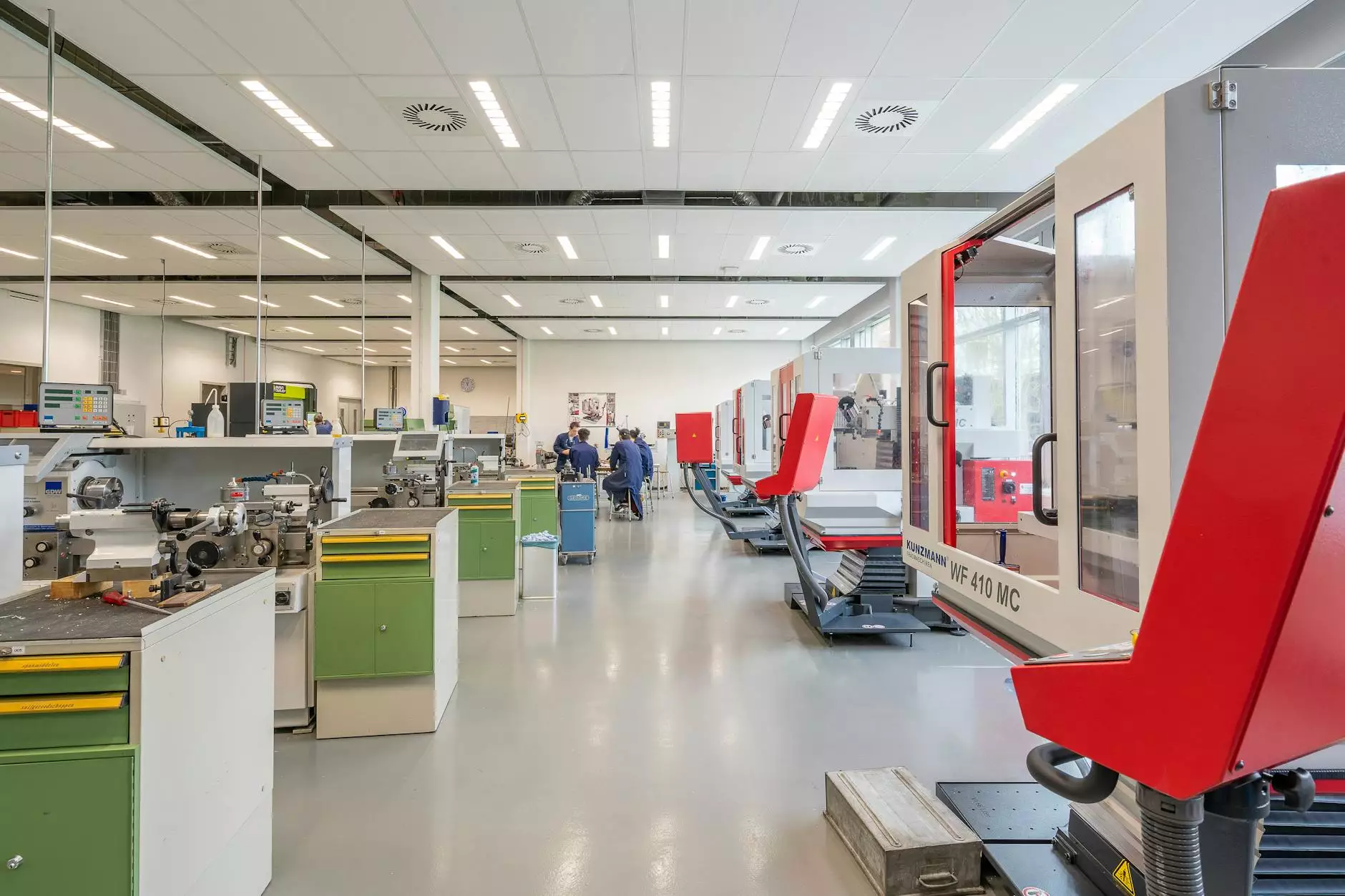The Ultimate Guide to Vacuum Industrial Products

In the realm of industrial solutions, vacuum industrial products stand out as a pivotal technology that has transformed various business operations. By harnessing the power of vacuum technology, companies can enhance efficiency, productivity, and sustainability in their processes. This article explores the intricate world of vacuum industrial products, highlighting their significance within various industries and how they facilitate modern manufacturing and service delivery.
What are Vacuum Industrial Products?
Vacuum industrial products refer to a wide range of equipment and technologies that utilize vacuum pressure to perform tasks. This category includes vacuum pumps, nozzles, pick and place systems, and filtration systems, all designed to operate in low-pressure environments. The primary function of vacuum industrial products is to create a controlled atmosphere to facilitate processes such as packing, drying, and material handling.
Key Applications of Vacuum Industrial Products
Vacuum technology applies across several industries such as manufacturing, food processing, pharmaceuticals, and electronics. Here are some key applications:
- Manufacturing: In manufacturing, vacuum industrial products are used for material handling and manipulation, including assembly line operations where delicate components must be positioned accurately without damage.
- Food Processing: In the food industry, vacuum packaging extends the shelf life of products by removing air and preventing spoilage, thus maintaining food quality.
- Pharmaceuticals: The pharmaceutical industry employs vacuum technology in processes like freeze drying, where moisture is removed from products to enhance stability and longevity.
- Electronics: Vacuum systems are critical in the production of electronic components, ensuring a clean environment free from contaminants that could affect product quality.
The Benefits of Vacuum Industrial Products
The implementation of vacuum industrial products provides numerous advantages, making them an essential investment for businesses looking to thrive in competitive markets:
1. Enhanced Efficiency
By utilizing vacuum technology, businesses can streamline their processes, leading to a significant reduction in production times and operational costs. For example, automated pick and place systems powered by vacuums can handle multiple items simultaneously, improving throughput.
2. Improved Quality Control
Vacuum environments allow for better control over material handling and packaging, reducing the risk of contamination and ensuring that products meet stringent quality standards. This is particularly vital in the food and pharmaceutical industries.
3. Sustainability
With growing concerns about environmental sustainability, vacuum industrial products play a crucial role in reducing waste. Vacuum packaging, for instance, minimizes the need for preservatives, thereby promoting healthier products and reducing landfill waste.
4. Safety Enhancements
Vacuum systems can enhance workplace safety by reducing the risk of spills and accidents. By containing harmful substances within a vacuum, companies can protect their employees and the environment more effectively.
Types of Vacuum Industrial Products
Understanding the different types of vacuum industrial products available can assist businesses in selecting the right solutions for their specific applications:
- Vacuum Pumps: These are essential components that create the vacuum necessary for many industrial processes. They come in various types, including rotary vane, diaphragm, and screw pumps.
- Vacuum Sealing Machines: Commonly used in the food industry, these machines create an airtight seal around products to enhance their shelf life and maintain freshness.
- Vacuum Lifters: These devices use suction to lift heavy items, providing an ergonomic solution to material handling and minimizing the risk of workplace injuries.
- Vacuum Filtration Systems: Employed in laboratories and production facilities, these systems are used for separating solids from liquids through a vacuum-driven process.
Innovations in Vacuum Technology
The field of vacuum industrial products is continually evolving with technological advancements. Companies are investing in research and development to create more efficient and sustainable solutions. Some notable innovations include:
1. Smart Vacuum Systems
Integration of IoT technologies has led to the development of smart vacuum systems that can be monitored and controlled remotely, providing real-time data on performance metrics and maintenance needs.
2. Energy-Efficient Pumps
New designs in vacuum pumps focus on energy efficiency, helping companies reduce their operational costs and environmental footprint.
3. Advanced Materials
The use of advanced materials in the construction of vacuum components optimizes performance and longevity, making equipment more reliable and cost-effective over time.
Choosing the Right Vacuum Industrial Products for Your Business
Selecting the appropriate vacuum industrial products depends on various factors, including the specific requirements of your industry and operational needs. Here are some steps to guide you in making the right choice:
- Assess Your Needs: Identify the specific processes where vacuum technology can enhance efficiency or quality.
- Conduct Research: Research different types of vacuum systems and their providers to determine which products align with your needs.
- Consult Experts: Engage with industry experts or suppliers who can provide insights tailored to your business context.
- Evaluate Total Cost of Ownership: Consider not only the initial purchase price but also energy consumption, maintenance costs, and potential savings over time.
- Test and Validate: Where possible, conduct trials with vacuum systems to evaluate their effectiveness before full-scale implementation.
The Future of Vacuum Industrial Products
The future of vacuum industrial products looks promising, with continuous innovations and an increasing emphasis on sustainability. Companies are likely to see advancements that enhance energy efficiency and product performance, making vacuum technology an integral part of industrial operations.
Conclusion
In summary, vacuum industrial products are essential tools in modern industry, offering a myriad of benefits that contribute to enhanced efficiency, safety, and sustainability. As businesses continue to evolve, embracing innovative vacuum technologies will not only optimize operations but also align with environmental goals. By understanding the various types and applications of vacuum products, and making informed decisions based on specific needs, enterprises can leverage these technologies to gain a competitive edge in their respective markets.
For more information on vacuum industrial products or to explore customized solutions, visit TMM.









